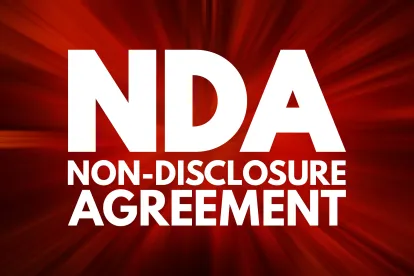On November 16, 2022, the U.S. Congress passed a bill that would limit enforceability of nondisclosure and nondisparagement provisions in pre-dispute agreements with employees and independent contractors relating to sexual harassment and sexual assault allegations. The bill, S. 4524, or the “Speak Out Act,” passed the U.S. House of Representatives with a vote of 315–109, the vote coming after the U.S. Senate passed the bill on September 29, 2022.
If the president signs the bill into law (which is expected), the bill would render agreements reached before a sexual assault or sexual harassment dispute arises unenforceable in “instances in which conduct is alleged to have violated Federal, State, or Tribal Law.” The Speak Out Act bill follows the passage of the “Ending Forced Arbitration of Sexual Assault and Sexual Harassment Act” in February 2022, which similarly limits the enforcement arbitration agreements or join-action waivers with respect to sexual harassment or sexual assault cases that were “agreed to before the dispute arises.”
However, the Speak Out Act is likely to have minimal impact on employers. Since the Speak Out Act would only apply to agreements executed before a sexual harassment or sexual assault dispute arises, it would not apply to separation agreements reached after sexual harassment or sexual assault allegations are made or to settlement agreements reached after such allegations are filed in court. Additionally, most employers’ pre-dispute nondisclosure/confidentiality agreements are designed to prevent the future use or disclosure of proprietary information and trade secrets, not sexual harassment or sexual assault allegations. That would not change under the Speak Out Act as it specifically states that “[n]othing in this Act shall prohibit an employer and an employee from protecting trade secrets or proprietary information.”
That said, a broad pre-dispute nondisclosure/confidentiality provision in an agreement prohibiting the prospective disclosure of all facts relating to one’s employment would likely be problematic. Employers may want to review such agreements to assure they are not overly broad.
Further, although the federal act may be limited in its practical impact, many states have laws that more robustly limit the enforcement of nondisclosure and nondisparagement provisions.
Key Definitions
The bill defines the key terms as follows:
Nondisclosure Clause
A “nondisclosure clause” is “a provision in a contract or agreement that requires the parties to the contract or agreement not to disclose or discuss conduct, the existence of a settlement involving conduct, or information covered by the terms and conditions of the contract or agreement.”
Nondisparagement Clause
A “nondisparagement clause” is “a provision in a contract or agreement that requires 1 or more parties to the contract or agreement not to make a negative statement about another party that relates to the contract, agreement, claim, or case.”
Sexual Assault Dispute
A “sexual assault dispute” refers to “a dispute involving a nonconsensual sexual act or sexual contact, as such terms are defined in section 2246 of title 18, United States Code, or similar applicable Tribal or State law, including when the victim lacks capacity to consent.”
Sexual Harassment Dispute
A “sexual harassment dispute” refers to “a dispute relating to conduct that is alleged to constitute sexual harassment under applicable Federal, Tribal, or State law.”
Key Takeaways
Employers may want to consider reviewing their employment agreements, arbitration agreements, and nondisclosure agreements to determine to what extent they include nondisclosure or nondisparagement clauses that would prohibit employees and/or independent contractors from discussing sexual harassment or sexual assault allegations. Employers may further want to consider whether any additional obligations exist under state or local law. The bill would not supersede any state or local law governing nondisclosure or nondisparagement agreements that are “at least as protective of the right of an individual to speak freely.”
The Speak Out Act would apply to any claim that is filed under federal, state, or tribal law after its enactment.






 />i
/>i
